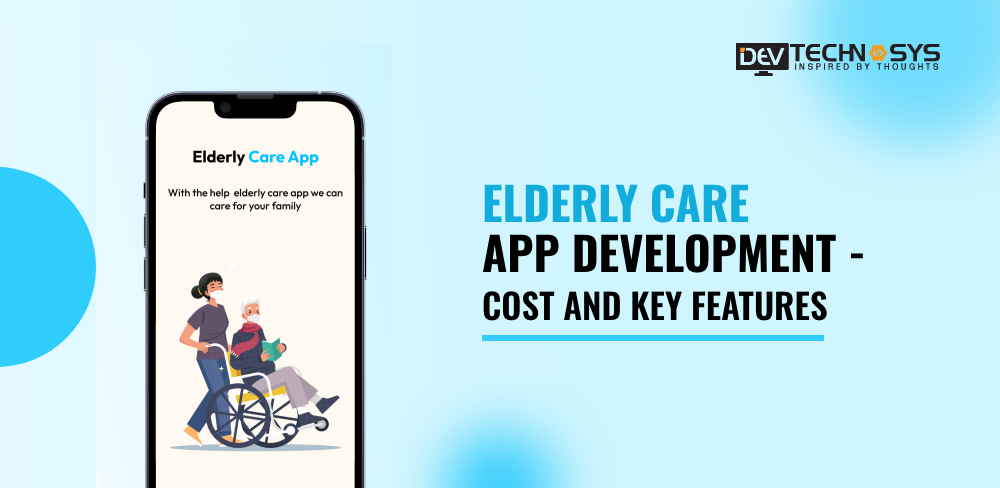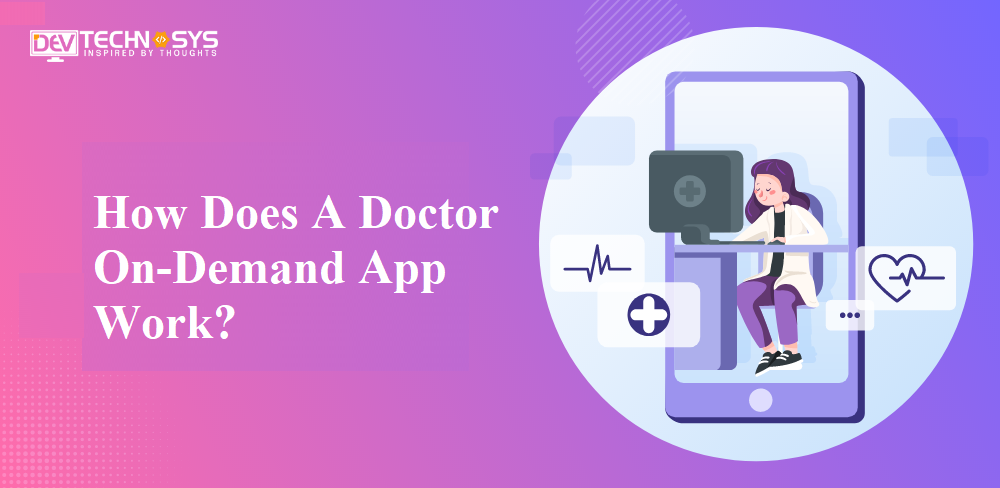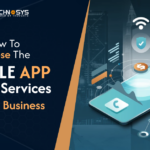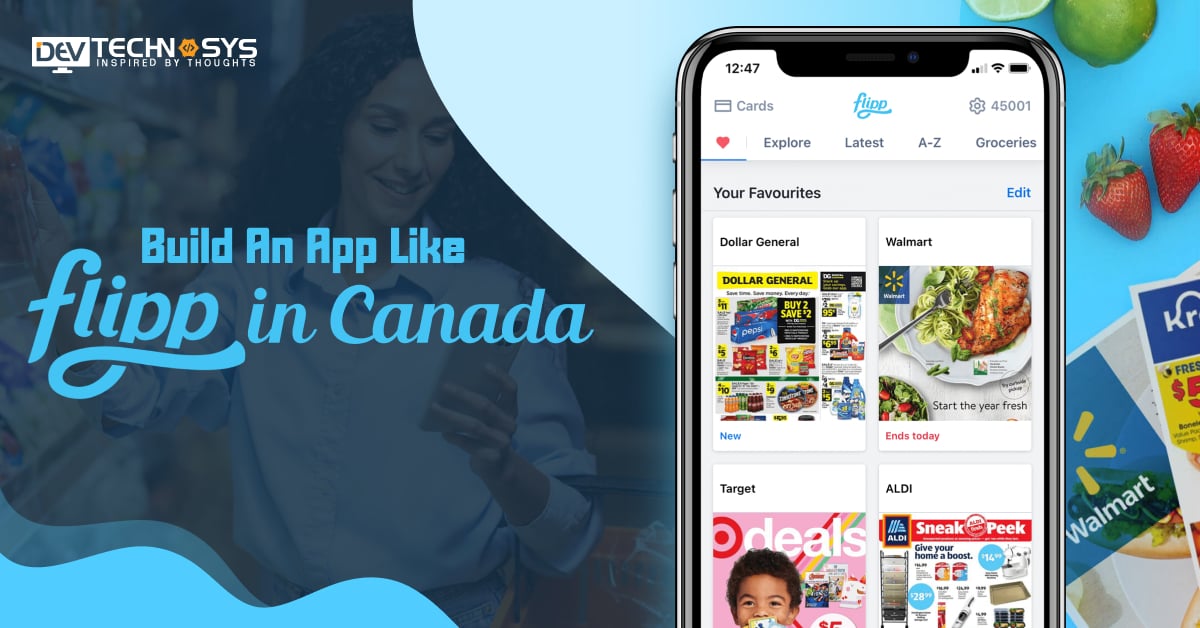“Caring for our elders is not just a responsibility, but a privilege. An Elderly Care App brings the warmth of compassion to their fingertips.” – Oprah Winfrey.
In an era dominated by technological advancements, the intersection of compassion and innovation has given rise to a groundbreaking solution: elderly care app development. As our global population ages, the need for efficient and empathetic elderly care has never been more pressing.
Elderly care app development isn’t just a technological trend; it’s a paradigm shift in how we approach the well-being of our elders. The senior care market, valued at $1,703.03 billion in 2022, is projected to grow at a compound annual growth rate of 6.80% to reach $2,882.66 billion by 2030.
Due to its immense popularity, various businesses want to invest in elderly care app development. But one of the most common questions that strikes every entrepreneur’s mind is how much elderly care app development costs.
This blog delves into the realm of elderly care app development, exploring the transformative impact of digital elderly care app development solutions tailored to meet the unique needs of our senior community.
What is Elderly Care App Development?
Elderly care app development involves creating mobile applications tailored to senior citizens’ unique needs, providing them with tools for healthcare management, social connectivity, and overall well-being.
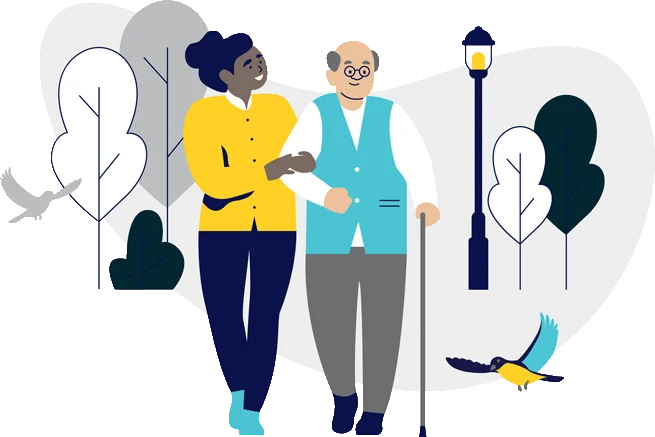
These apps may include features like medication reminders, health tracking, emergency assistance, and communication platforms for connecting with caregivers or peers. The goal is to enhance the quality of life for older people by fostering independence, monitoring health, and addressing specific challenges associated with aging.
Such applications contribute to a more comprehensive and personalized approach to elderly care in an increasingly digitized world. So, if you want to develop an elderly care app, you must hire mobile app developers.
Market Stats of Elderly Care App

- The poll found that Millennials accounted for 45% of US users of health apps.
- Up until 2030, 10,000 baby boomers will turn 65 every day.
- Senior & Handicapped Services The US market will be worth $60 billion in 2022.
- Seven out of 10 individuals will need long-term care.
- By 2024, the US home care industry is anticipated to reach $225 billion.
- There will be a shortage of 29,000 nurse practitioners, 100,000 nursing assistants, and 500,000 home health aides in the US by 2025.
- 87% of older adults choose to continue living in their existing neighborhood and house.
- Only 21% of seniors between the ages of 50 and 80 use at least one health mobile app, 16% have given up on using it, and 56% have never used a healthcare app, according to the University of Michigan National Poll on Healthy Aging.
How Much Does Elderly Care App Development Cost?
Development costs for senior care are influenced by several variables, such as the application’s size, the technology it uses, the project’s schedule, and the location of the on-demand app development team. The typical cost of product development for an elderly care mobile development project is between $10,000–$25,000, with no maximum bounds.
| App Complexity | Cost Estimation | Time Duration |
| Simple App | $10000-$15000 | 2-4 months |
| Medium App | $15000-$20000 | 5-7 months |
| Complex App | $25000 | 9 months |
A feature-rich, cross-platform application with sophisticated functionality and strict security measures may have a more significant development cost than a basic app with fewer features.
To minimize development expenses, features must be thoughtfully planned and prioritized according to the target audience’s requirements and the app’s intended use.
Thus, you must contact a mobile app development company to determine the precise cost of developing an app for elder care.
Factors Affecting the Elderly Care App Development Cost
The elderly care app development cost is influenced by various factors contributing to its complexity and functionality. Understanding these factors is crucial for planning and budgeting. Here are key elements that impact the mobile app development cost:
1. Features and Functionality:
The complexity and variety of features incorporated into the app play a crucial role in determining the overall cost. Features like medication reminders, health monitoring, emergency alerts, and communication tools can add to the development time and expenses—the more sophisticated and diverse the elements, the higher the development costs.
2. UI/UX Design:
The complexity and variety of features incorporated into the app play a crucial role in determining the overall cost. Features like medication reminders, health monitoring, emergency alerts, and communication tools can add to the development time and expenses—the more sophisticated and diverse the elements, the higher the development costs.
3. Integration with Wearable Devices and IoT:
If the app is designed to integrate with wearable devices or IoT (Internet of Things) technology for health monitoring, the Custom Elderly Care App Development costs may increase. Ensuring seamless connectivity and data synchronization between the app and various devices requires additional effort and resources, impacting the overall budget.
4. Compliance with Regulatory Standards:
Elderly care apps often deal with sensitive health information, necessitating compliance with regulatory standards such as HIPAA (Health Insurance Portability and Accountability Act). Ensuring that the app adheres to these standards adds complexity to the development process and may involve additional costs related to security measures, data encryption, and compliance audits.
5. Platform and Device Compatibility:
Developing an app that runs smoothly on various platforms (iOS, Android) and devices (smartphones, tablets) increases development costs. Optimizing the app for different screen sizes, resolutions, and operating systems requires additional testing and development efforts, contributing to the overall budget.
6. Security and Privacy Considerations:
Security is paramount, especially when dealing with healthcare data. Implementing robust security measures to protect user information from unauthorized access or data breaches is a crucial aspect of elderly care app development. Incorporating encryption, secure authentication, and regular security updates adds to the development cost but is essential for user trust and compliance.
Top 5 Elderly Care Apps
| Elderly Care Apps | Available Platforms | Ratings | Downloads |
| Breathe2Relax | Android | iOS | 4.1 | 10K+ |
| CaringBridge | Android | iOS | 4.9 | 100K+ |
| Headspace | Android | iOS | 4.5 | 10M+ |
| Happify | Android | iOS | 3.5 | 500K+ |
1. Breathe2Relax
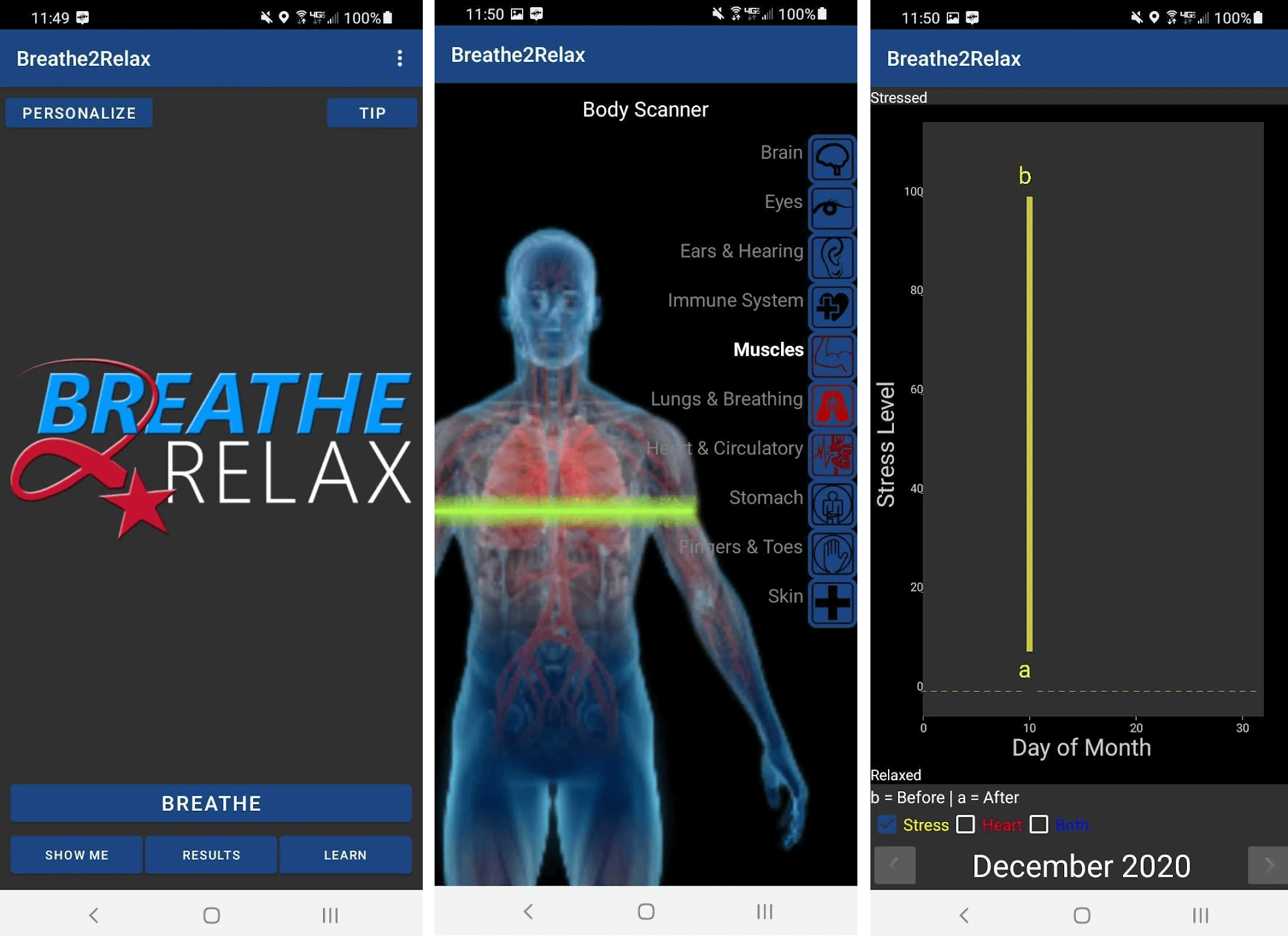
Breathe2Relax is a user-friendly app designed for elderly care, focusing on deep breathing exercises to promote relaxation and stress relief. Tailored for seniors, it offers simple guided breathing sessions, enhancing mental well-being and physical health. With a calming interface, it encourages mindfulness, making it an ideal companion for elderly individuals seeking tranquility.
2. CaringBridge
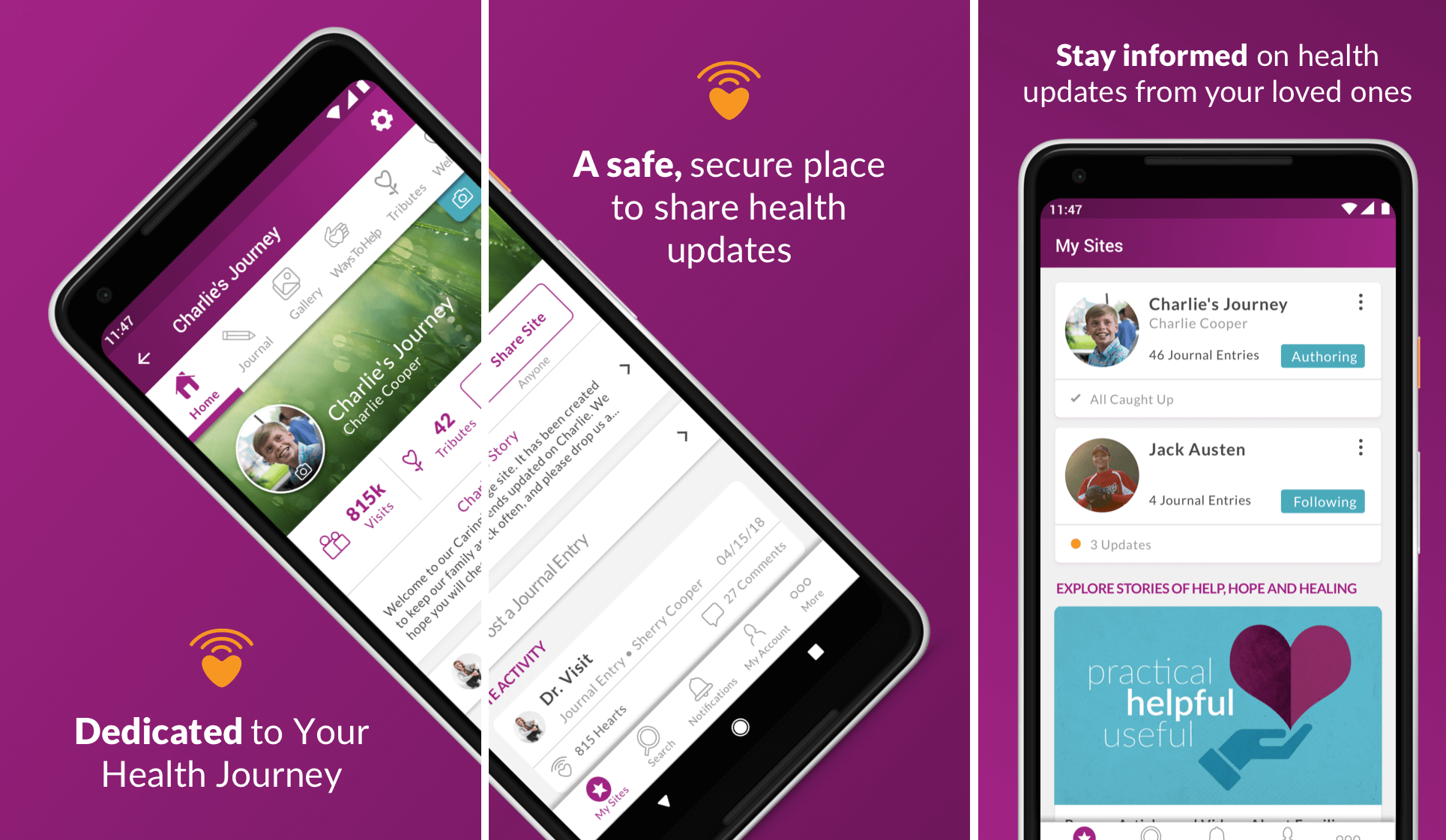
CaringBridge is a user-friendly elderly care app designed to connect families and caregivers, providing a centralized platform for sharing health updates, coordinating care, and offering support. It enhances communication and fosters a supportive community, helping families navigate the complexities of elderly care with ease and compassion.
3. First Aid
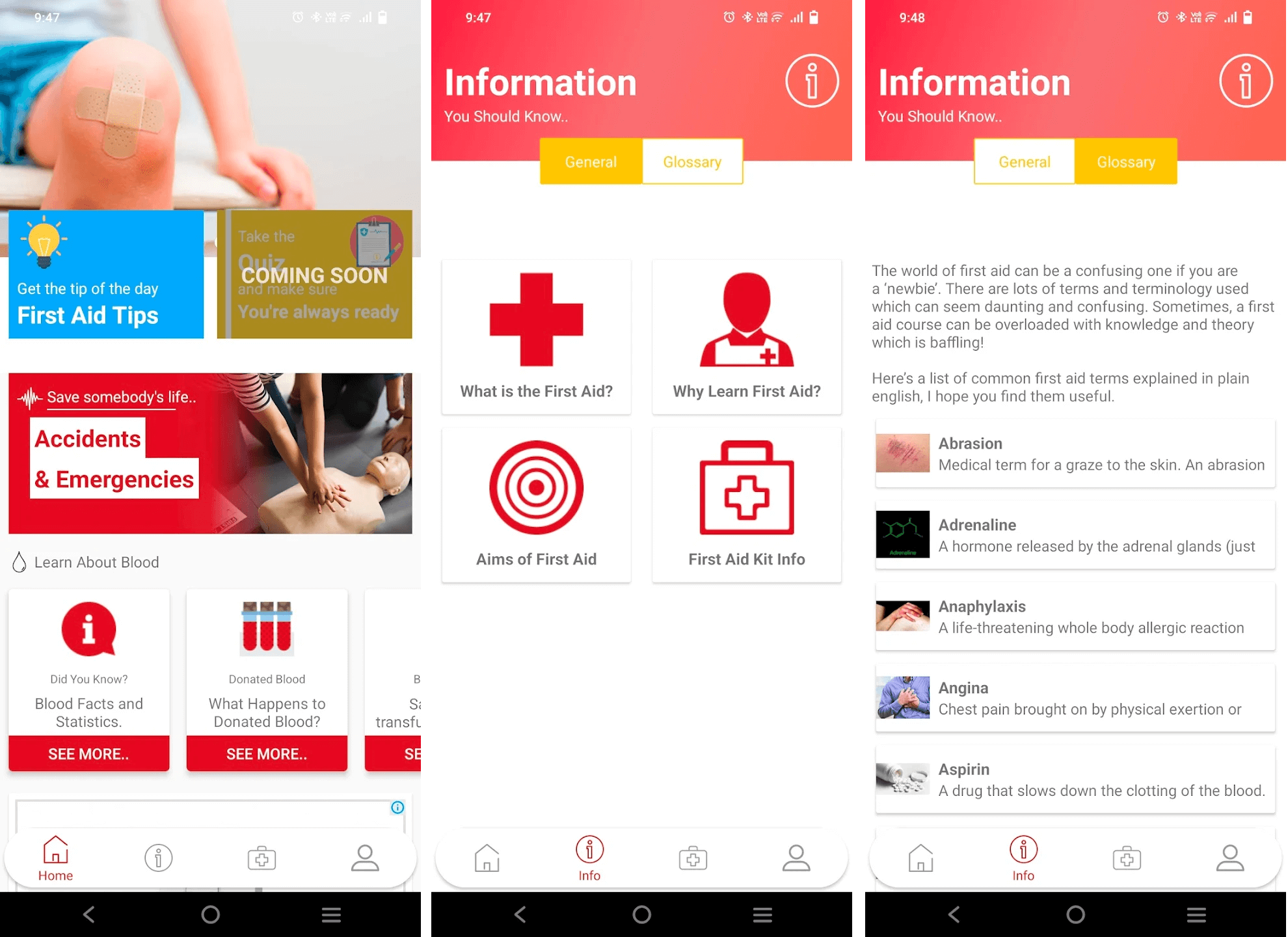
The First Aid app for elderly care is an essential tool providing step-by-step guidance on handling common emergencies affecting older adults. It is tailored to senior needs and offers clear instructions, emergency contacts, and personalized health information. Empower caregivers with the knowledge to respond swiftly, ensuring the well-being of elderly loved ones.
4. Headspace
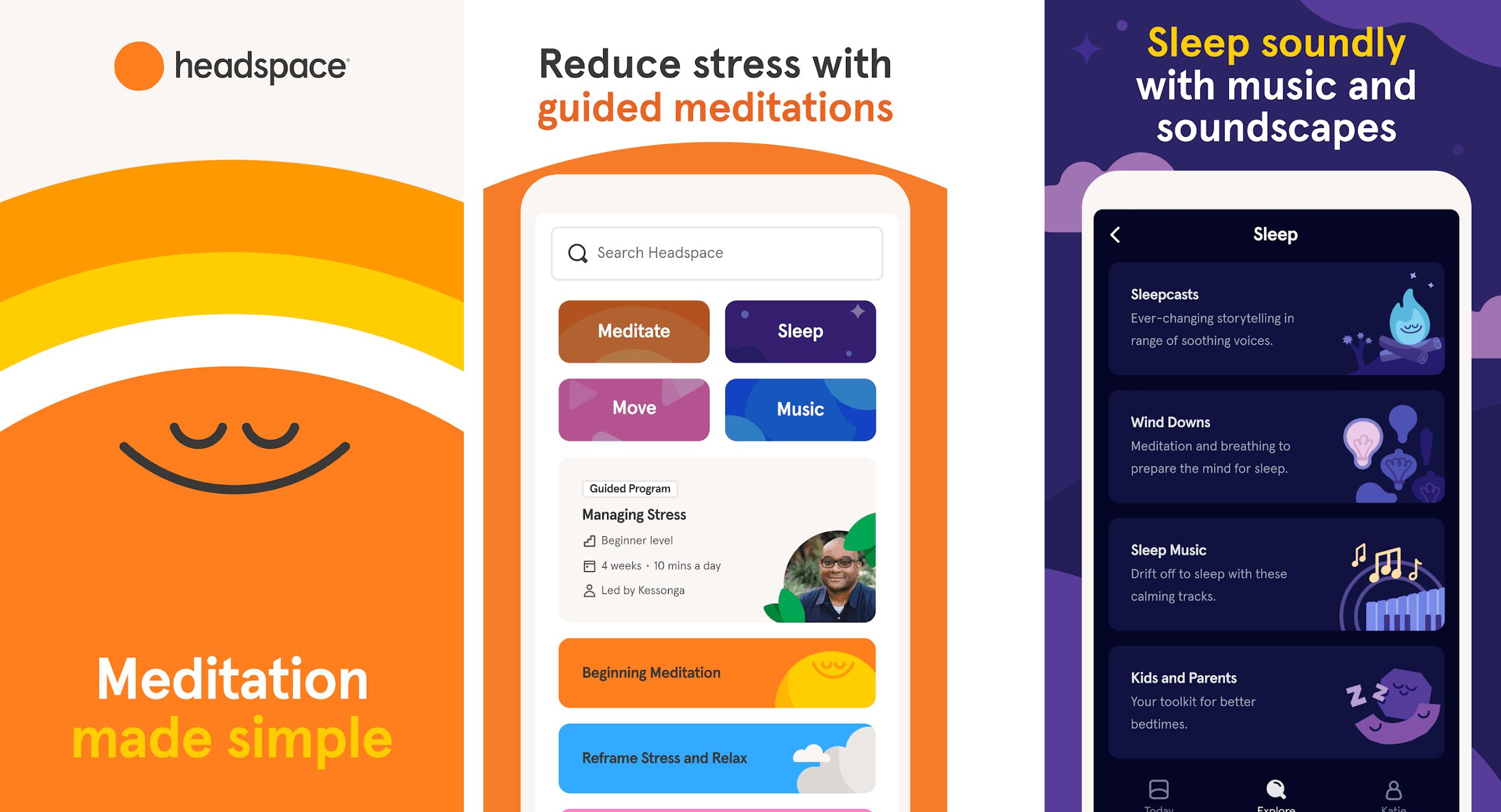
Headspace is an innovative elderly care app designed to enhance the well-being of seniors. It promotes mental and emotional health by offering personalized meditation sessions, cognitive exercises, and social engagement features. With user-friendly interfaces and tailored content, Headspace fosters a supportive digital community, fostering connection and mindfulness for elderly individuals.
5. Happify
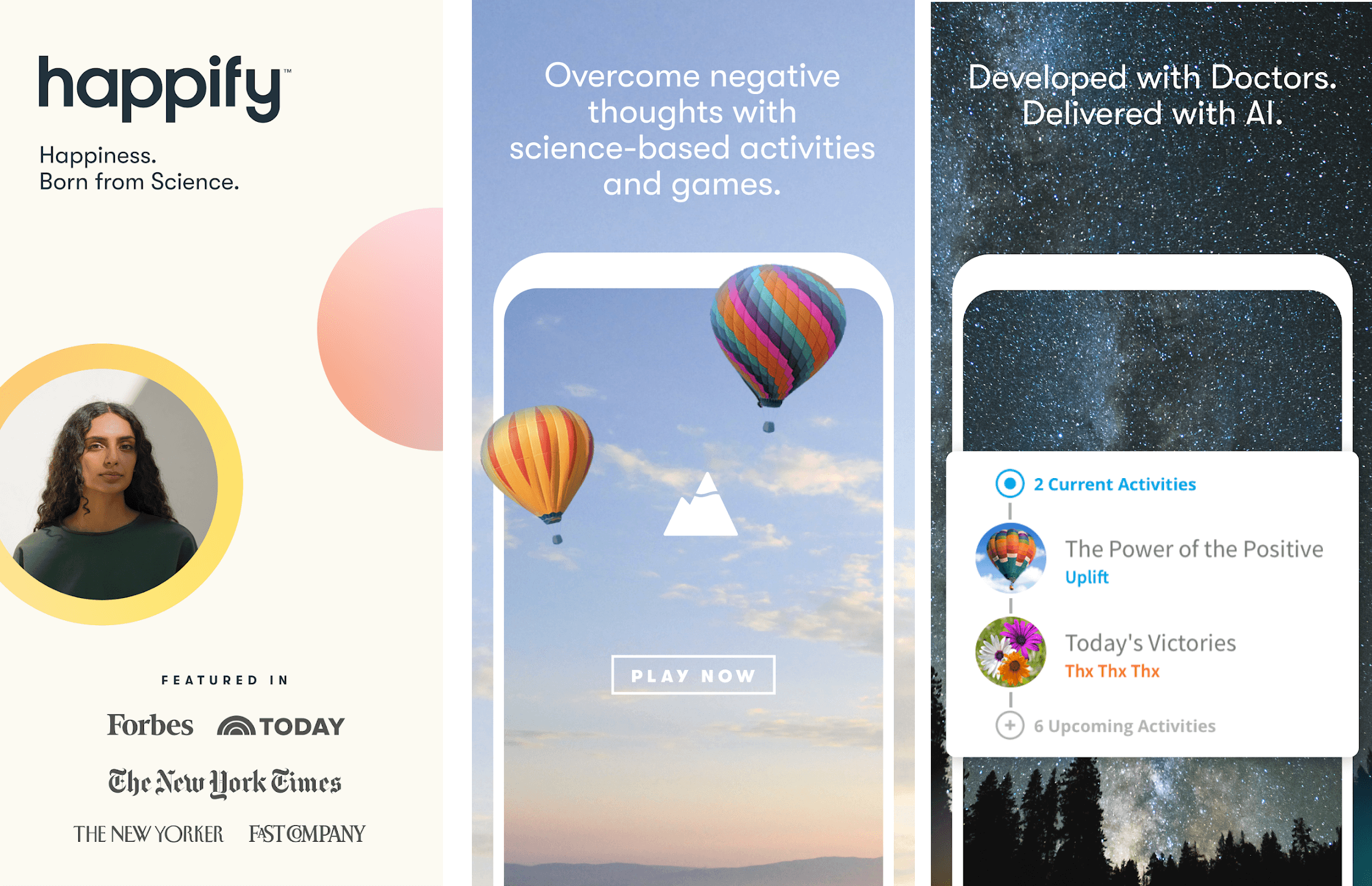
Happify, an innovative elderly care app, prioritizes the well-being of seniors by offering personalized activities and emotional support. Tailored exercises, social connections, and mental health resources enhance cognitive function and foster a positive mindset. With user-friendly features, Happify promotes a fulfilling and joyful experience for older people, promoting overall wellness.
Must-have Features of Elderly Care App Development
Creating an effective elderly care app involves incorporating features that address seniors’ unique needs and challenges. These features enhance their well-being, ensure safety, and facilitate communication. Here are must-have features for elderly care app development:
1. Medication Reminders:
Implementing a robust medication reminder feature is essential. The app should allow users or caregivers to schedule medication with timely notifications and dosage instructions. This feature ensures that seniors adhere to their prescribed medication regimens, promoting better health management.
2. Health Monitoring:
Integrating health tracking features enables users to monitor vital signs such as heart rate, blood pressure, and activity levels. This information can be shared with healthcare professionals or family members, facilitating proactive interventions and promoting preventive care.
3. Emergency Assistance:
A quick and easy-to-access emergency button or feature is crucial. This could include one-touch calling for emergency services, sending alerts to predefined contacts, or utilizing GPS for location tracking in emergencies. Swift response times can be critical in emergencies.
4. Telehealth and Video Consultations:
Hire Android app developers who can integrate telehealth capabilities into your app, allowing seniors to consult with healthcare professionals remotely. Video calls can facilitate virtual medical appointments, reducing the need for physical travel, especially for routine check-ups or non-emergency consultations.
5. Social Connectivity:
Building features encouraging social interaction is vital for combating loneliness and promoting mental well-being. This could involve messaging, video calls, or community forums where seniors can connect with peers, share experiences, and engage in social activities.
6. Fall Detection and Alerts:
Integrating fall detection algorithms using smartphone sensors or wearables can automatically trigger alerts in case of a fall. This feature ensures timely assistance and can be a crucial safety net for seniors, especially those living alone.
7. User-Friendly Interface with Accessibility Features:
Designing a user-friendly interface with large icons, clear fonts, and easy navigation is essential for elderly users who may not be tech-savvy. Additionally, incorporating accessibility features like voice commands or screen readers enhances usability for seniors with varying levels of digital literacy.
8. Family/Caregiver Portal:
Including a dedicated portal for family members or caregivers enables them to stay informed about the senior’s well-being. This may include access to health records, medication adherence reports, and communication logs, fostering a collaborative approach to caregiving.
Tips to Reduce the Elderly App Development Cost
Reducing the development cost for elderly apps requires a strategic approach that balances functionality and efficiency. Here are tips to help minimize costs while delivering a valuable product:
1. Prioritize Features Wisely:
Begin by identifying the core features essential for your elderly app. Focus on functionalities that directly address the needs of the elderly population. Avoid unnecessary complexities and prioritize simplicity and usability. This targeted approach ensures that resources are allocated efficiently, reducing development costs.
2. Utilize Cross-Platform Development:
Opt for cross-platform development frameworks like React Native or Flutter. These frameworks enable you to write code once and deploy it on multiple platforms, saving time and resources. By avoiding the need to develop separate codebases for iOS and Android, you streamline the development process and cut down on costs.
3. Minimum Viable Product (MVP) Approach:
Adopt the MVP approach to launch a basic version of your app with essential features. This allows you to gather user feedback early in development, ensuring you invest resources in suitable functionalities. It also minimizes initial development costs, and additional features can be added in future updates based on user feedback and requirements.
4. Outsource Non-Core Activities:
Consider outsourcing non-core activities like design, testing, or specific development tasks. Outsourcing can be a cost-effective way to access specialized skills without hiring full-time employees. Ensure clear communication and collaboration with your outsourcing partners to maintain control over the project.
5. Open Source Solutions:
Leverage existing open-source solutions for components that are not unique to your app. This can significantly reduce development time and costs. However, ensure compliance with licensing agreements and thoroughly vet the security aspects of any open-source components you integrate into your elderly app.
6. Scalable Infrastructure:
Plan for scalability from the beginning. Choose a cloud-based infrastructure that allows you to scale your app as the user base grows. Cloud services like AWS, Azure, or Google Cloud provide scalable solutions, and you only pay for the resources you use. This eliminates the need for significant upfront infrastructure investments.
7. Continuous Testing and Quality Assurance:
Implement continuous testing and quality assurance practices throughout the development lifecycle. Detecting and addressing issues early on prevents costly fixes later in the process. Automated testing tools can help ensure the stability and reliability of your elderly app without extensive manual testing.
Conclusion
The development cost of an elderly app is influenced by various factors such as features, design complexity, and platform choice. To ensure a successful and cost-effective project, it’s crucial to hire an experienced Android app development company that understands the unique needs of the elderly demographic. By investing in skilled professionals, you not only optimize development costs but also ensure a user-friendly and impactful solution for older people.
FAQ
1. How to Develop an Elderly Care App?
To Build Elderly Care Apps, you need to follow the below steps:
- Identify critical features like medication reminders, emergency contacts, and health tracking.
- Prioritize user-friendly interfaces with large fonts and simple navigation.
- Integrate wearable device compatibility for real-time health monitoring.
- Ensure data security and consult with healthcare professionals for input.
- Test thoroughly for accessibility and usability.
2. How to Monetize the Elderly Care App?
Monetize your elderly care app through subscription plans offering premium features like health monitoring, medication reminders, and personalized caregiving insights. Implement in-app purchases for additional services, collaborate with healthcare providers for referral fees, and explore partnerships with eldercare product vendors for commission-based sales within the app.
3. How Long Does it Take to Develop an Elderly Care App?
The development time for an elderly care app depends on its complexity and features. A simple app may take 2-4 months, while a more advanced one with intricate functionalities could require 7-9 months or more. Timelines are influenced by design, testing, and regulatory considerations, impacting overall development duration.
4. What Are the Benefits of Creating an Elderly Care App?
An elderly care app facilitates improved communication, health monitoring, and assistance for seniors, enhancing their overall well-being. It provides real-time support, medication reminders, and emergency services, fostering independence and reducing caregiver stress. Additionally, it promotes social connectivity and ensures a more efficient and personalized approach to elderly care.
